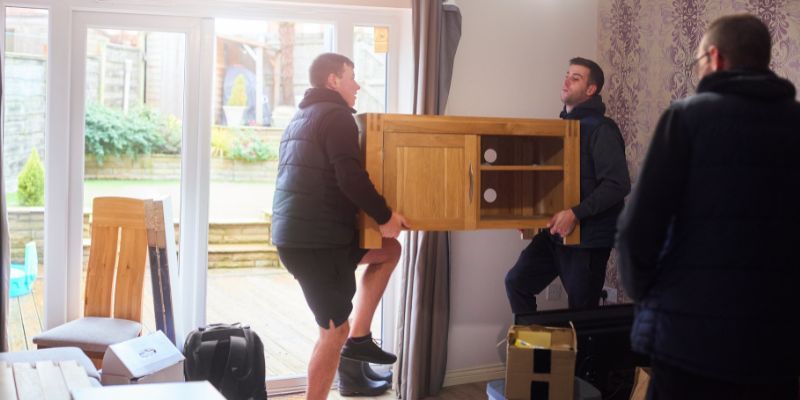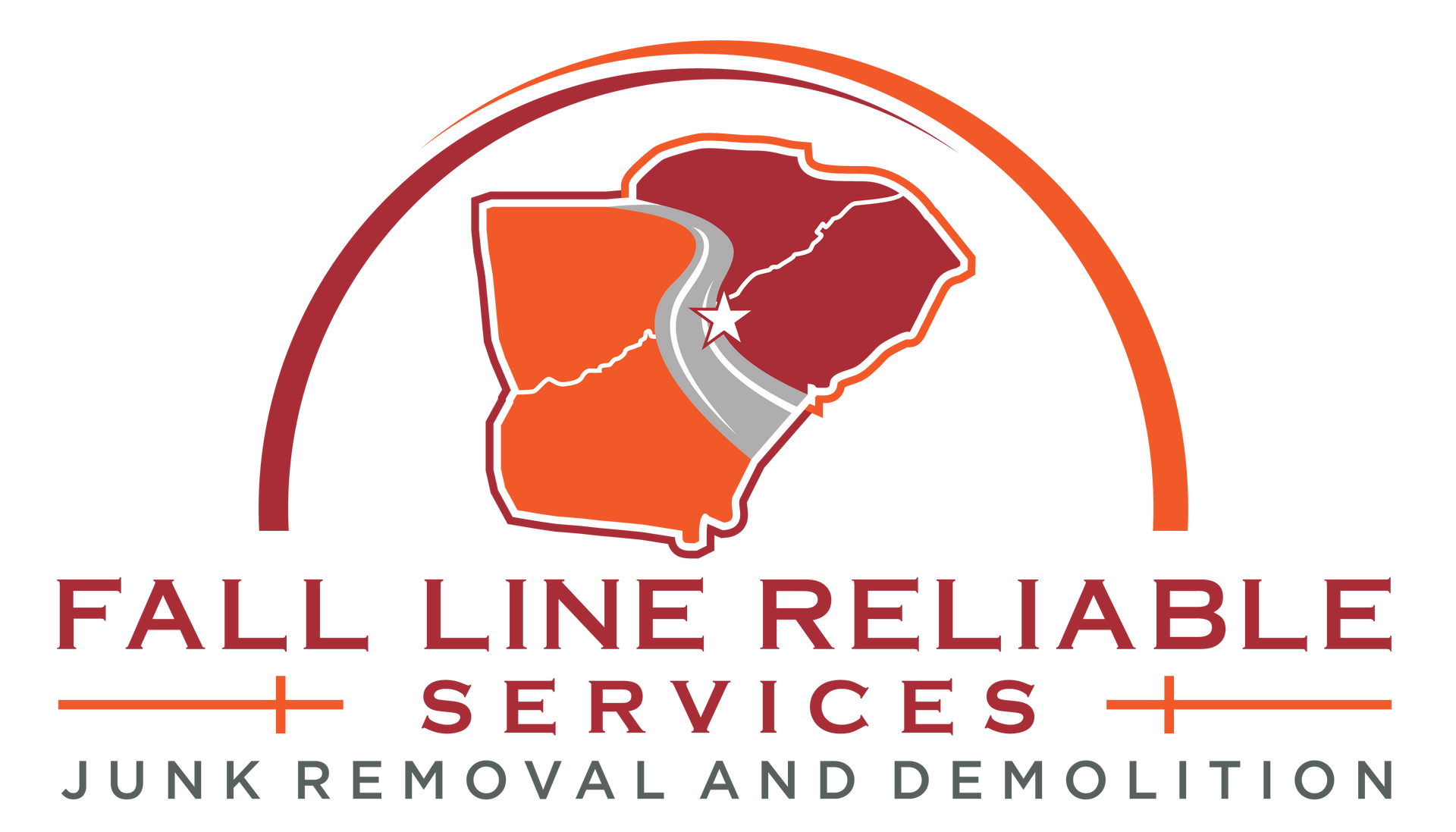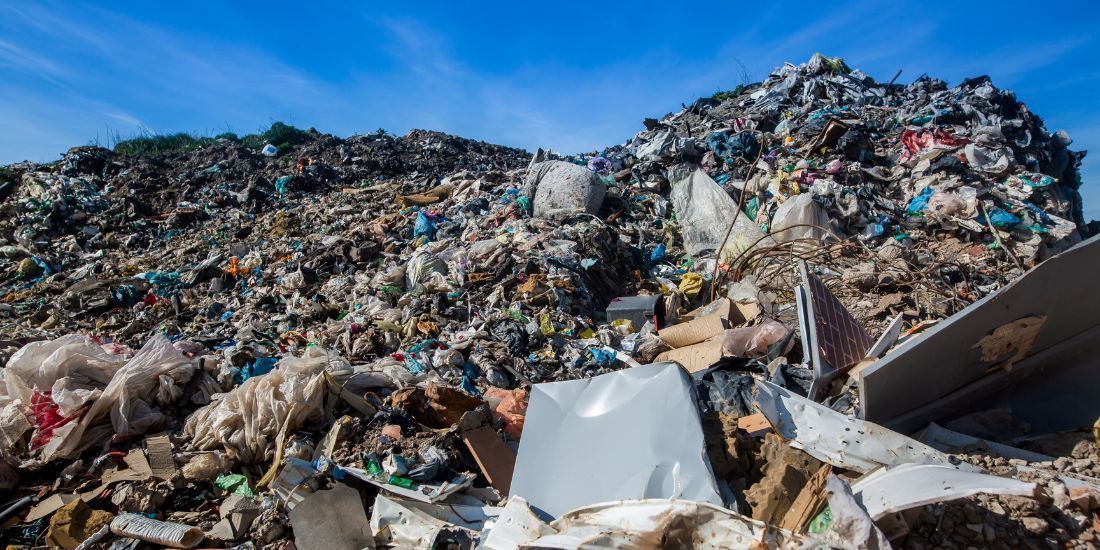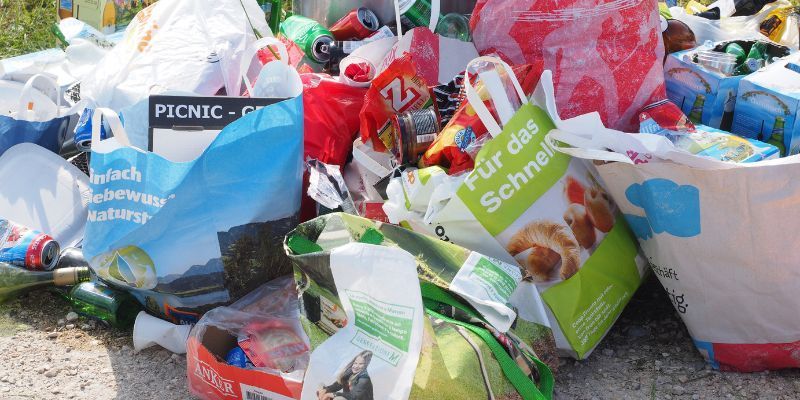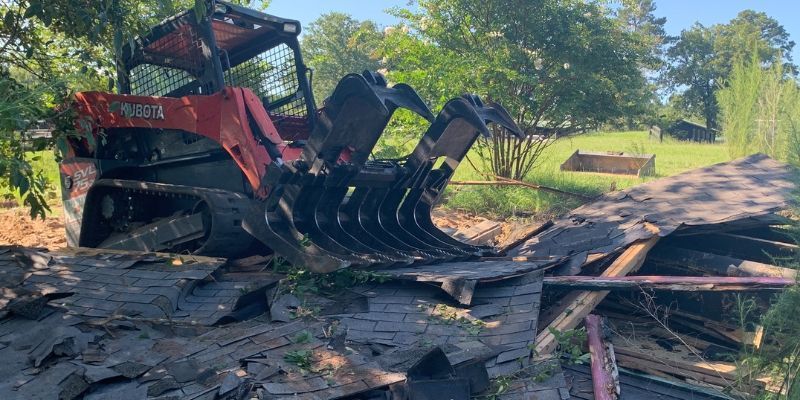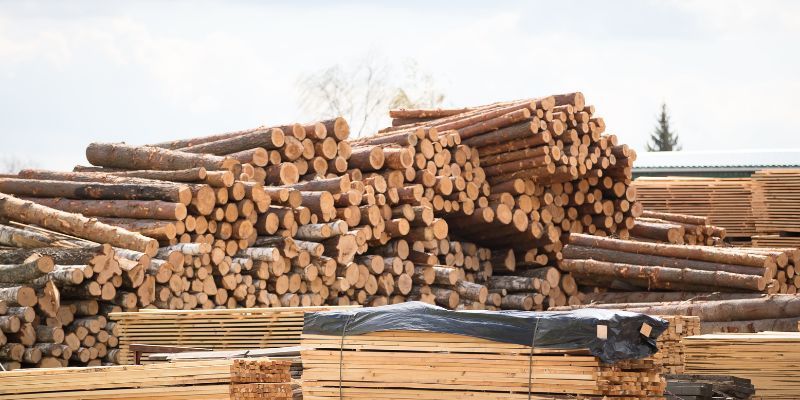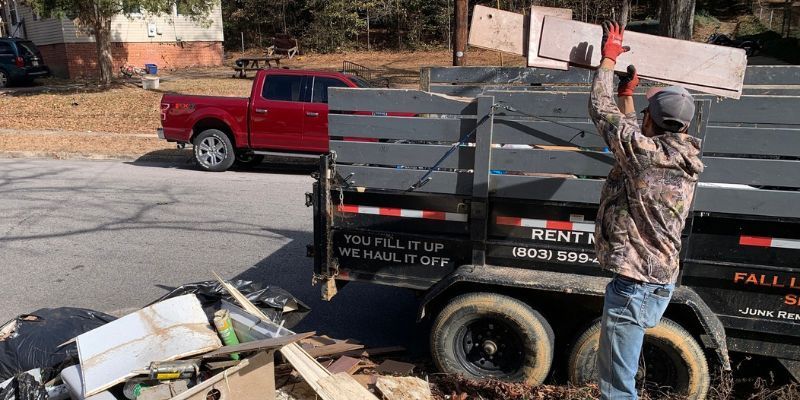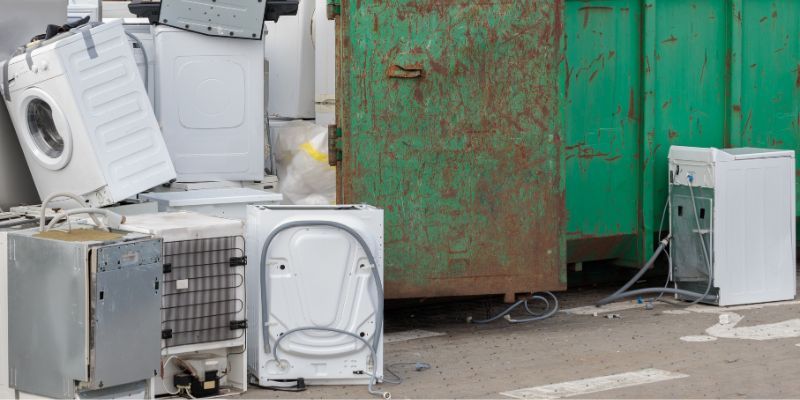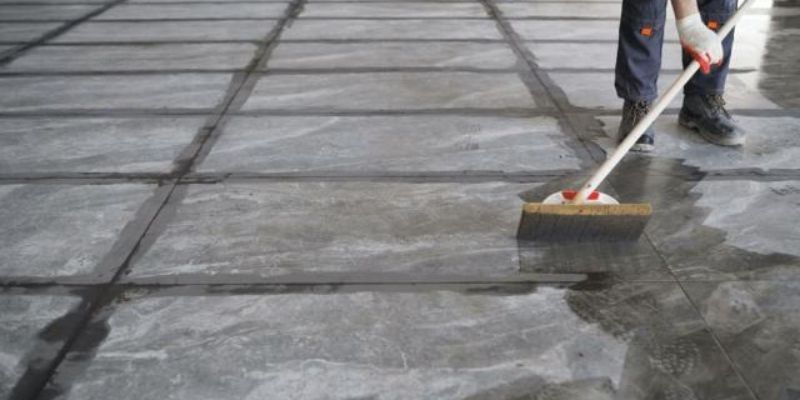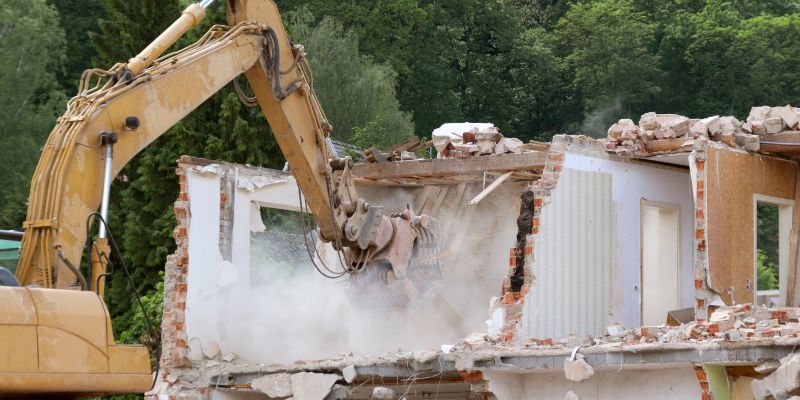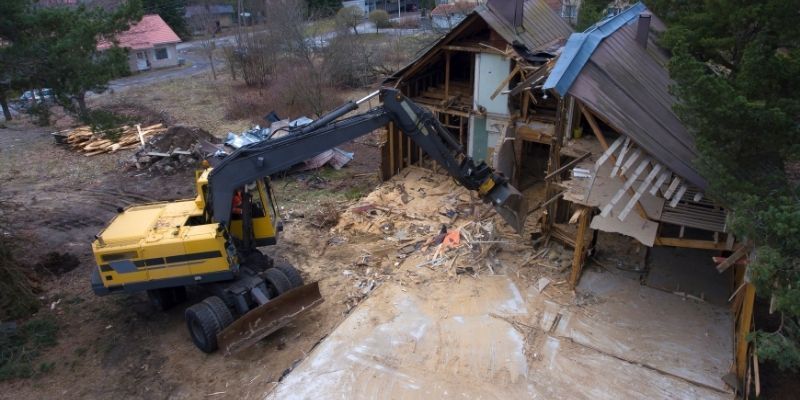Unlocking the Secrets of Dumpster Rental
Understanding the dumpster rental process can often be perplexing and filled with industry-specific jargon that leaves you scratching your head.
That’s where we at Fall Line Reliable Services step in. We’re here to simplify this process and present objective facts.
In this article, we will demystify the ins and outs of dumpster rental, providing you with a clear, comprehensive guide to understand what it involves.
Understanding Dumpster Rental Basics
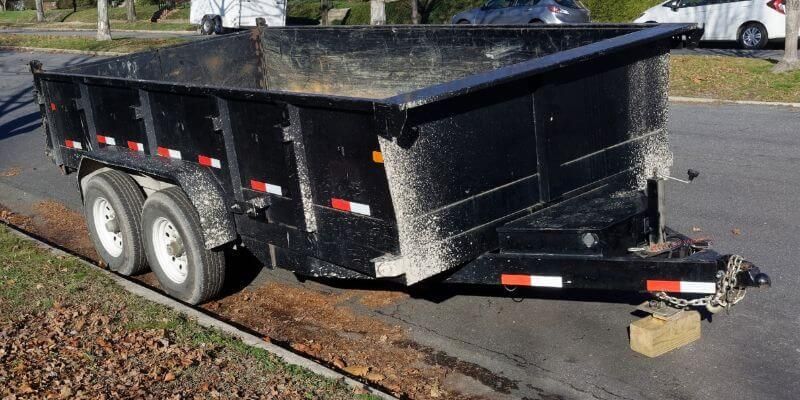
If you’ve ever had a large amount of waste to dispose of, you’ve likely considered dumpster rental.
But what does this process involve?
What are the key things you need to know before you hire a dumpster?
We break down the essential elements of dumpster rental, such as selecting the right size dumpster, what costs you can expect, and how the rental process works.
This information will give you a clear picture of what to expect when renting a dumpster.
Selecting the Right Size
When exploring how dumpster rental works, the first crucial step is selecting the right size for your needs.
Whether it’s a modest home cleanout or a larger construction project, matching the dumpster size to your waste volume is critical.
Begin by assessing your project’s waste volume to choose an appropriately sized dumpster, preventing unnecessary costs or insufficient capacity.
Duration Considerations
Optimize the rental duration based on your project timeline, allowing sufficient time for waste disposal without incurring additional fees.
Typical rental periods range from 7 to 14 days, depending on your location and dumpster provider.
If your project requires a longer duration or if you need the dumpster for shorter than the standard rental period, make sure to inquire about any potential additional fees.
Delivery and Pickup
Once you have selected the right size and duration, the next step is to arrange for the delivery and pickup of the dumpster. The process is straightforward. Provide your desired drop-off location and schedule a date for delivery.
When filling out the order form, include specific instructions or details such as preferred placement location, accessibility concerns, or special instructions for pickup.
Rules and Regulations
Familiarizing yourself with any rules and regulations regarding dumpster rental in your area is crucial.
Certain areas may require permits for placing a dumpster on the street or sidewalk, and you want to avoid facing fines or penalties for not following proper procedures. Make sure only to load approved materials into the dumpster.
Never dispose of hazardous waste, such as chemicals or electronics, in a rental dumpster.
Placement and Accessibility
When choosing a location to place your dumpster, consider accessibility for both loading and pickup. Ensure the truck has enough space to drop off and pick up the dumpster without obstructions.
Keep the dumpster close to where you will work to minimize the distance for carrying items. If you have specific placement instructions or concerns, communicate them clearly when scheduling your rental.
This can include details such as preferred placement location or obstacles that impede access, such as low-hanging branches or wires.
Proper Loading Techniques
To maximize space in your rental dumpster, loading items properly is essential.
Start by placing larger and heavier items at the bottom of the dumpster and gradually working your way up to smaller and lighter items.
This will help disperse the weight and prevent items from shifting during transportation.
Prohibited Items
Certain materials are prohibited because of environmental regulations or safety concerns. These may include hazardous waste, electronics, tires, batteries, etc.
Weight Limits
Another factor to consider when loading a dumpster is weight limits. Exceeding the maximum weight capacity of each dumpster can cause additional fees or damage to the dumpster and truck during pickup.
To avoid any extra charges or complications, only load acceptable items within the weight limit provided by the rental company.
If you need clarification on the weight of certain items, it’s always best to consult the company for guidance.
Overfilling
Overfilling a dumpster can create safety hazards and lead to additional fees.
It’s essential to fill the dumpster only to the designated fill line, which is typically marked on the inside of the dumpster.
This guarantees the safe transportation and pickup of the dumpster.
The rental company may only accept a pickup for an overfilled dumpster once it's loaded correctly.
This can delay your project and result in extra fees or penalties.
To avoid this, follow all dumpster fill guidelines and stay within the designated fill line.
Types of Dumpster Rentals
Depending on the size and type of waste you need to dispose of, several dumpsters are available for rental.
Here are some standard options:
1. Roll-off Dumpsters
Roll-off dumpsters are commonly used for significant construction or renovation projects with high waste output.
They come in various sizes, ranging from 10 to 40 yards, and can handle heavy materials like concrete, drywall, and roofing shingles.
2. Front-load Dumpsters
Front-load dumpsters are more minor and commonly used by businesses or apartment complexes. They come in sizes ranging from 2 to 8 yards and have a lid to lock to prevent unauthorized access.
3. Compactor Dumpsters
Compactor dumpsters are like front-load dumpsters but have a compactor attached. This compacts the waste, allowing for more space and reducing the need for frequent pickups.
Supermarkets, restaurants, and other businesses that generate much waste commonly use them.
4. Recycling Dumpsters
As the name suggests, recycling dumpsters are specifically designed for collecting recyclable materials. They come in various sizes and can be used for commercial and residential purposes.
5. Hazardous Waste Dumpsters
For hazardous or toxic waste disposal, it is crucial to use specialized dumpsters designed to handle these materials safely.
Hazardous dumpsters may require special permits and must be disposed of at designated facilities.
6. 40-Yard Dumpster
The 40-yard dumpster is one of the most extensive options, catering to substantial projects with significant waste volumes.
Commonly used in commercial construction, large-scale demolitions, or extensive renovations, the 40-yard dumpster ensures ample capacity for concrete debris, minimizing the need for frequent disposals.
Typical Use Cases for a 40-Yard Dumpster
- Commercial Construction Projects: The 40-yard dumpster is a go-to option for large-scale construction endeavors, accommodating the substantial waste generated during the process.
- Demolitions: When demolishing structures or handling extensive renovation projects, the 40-yard dumpster can hold diverse materials, from concrete to debris.
- Estate Cleanouts: In situations where extensive property cleanouts are required, such as clearing out an entire estate or property, the 40-yard dumpster proves invaluable in efficiently managing the waste.
- Large-Scale Events: From outdoor concerts to festivals, the 40-yard dumpster is essential in keeping high-traffic areas clean and ensuring that all waste is correctly disposed of.
- Major Home Renovations: When tackling significant home renovation projects, a 40-yard dumpster provides the capacity for disposing of large amounts of construction debris.
Residential vs. Commercial Dumpsters
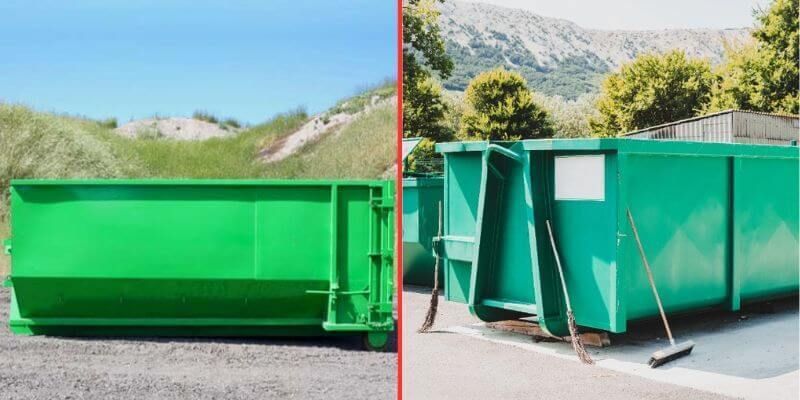
While residential dumpsters are typically smaller and designed for household trash, commercial dumpsters, particularly the 40-yard option, are ideal for larger-scale projects and events.
Residential Dumpsters
Waste management in residential settings often involves smaller dumpsters ranging from 2 to 8 cubic yards.These compact containers suit household projects like renovations, cleanouts, landscaping, or other residential junk removals.
Positioned in driveways or designated areas, residential dumpsters blend aesthetically with the surroundings, minimizing disruption to neighbors.
Typically, homeowners do not require permits for short-term rentals, but adherence to local regulations is essential.
Commercial Dumpsters
In contrast, commercial waste management demands larger dumpsters, ranging from 2 to 8 cubic yards for small businesses and restaurants and up to 30 or 40 cubic yards for larger enterprises.
Commercial dumpsters accommodate the higher volume of waste generated by commercial activities.
Placed strategically inaccessible areas within commercial properties or shared waste collection zones, they facilitate the consistent disposal needs of businesses.
Compliance with local ordinances and regulations is critical, often causing permits for dumpster placement.
Dumpster Rental Cost Factors
Various factors play a pivotal role in the overall cost of dumpster rental. Understanding these key factors empowers you to make informed decisions tailored to your project needs.
Size of the Dumpster
The size of the dumpster you choose significantly affects the cost. Larger dumpsters with greater capacity come with higher rental prices.
Assessing your project’s waste volume and selecting an appropriately sized dumpster helps optimize costs.
Location
Your geographical location plays a crucial role in determining dumpster rental costs. Delivery fees and regional pricing variations contribute to the overall expense. Urban areas incur different costs compared to suburban or rural locations.
Rental Duration
The duration for which you need the dumpster is a crucial cost factor.
Short-term rentals are more cost-effective for smaller projects, while long-term rentals offer better rates for ongoing or extended undertakings.
Type of Debris
The type of waste you’re disposing of can influence costs. Certain materials may require specialized disposal methods, affecting the overall expense.
Communicating the specifics of your waste stream with the rental provider ensures accurate pricing.
Additional Services
These services can incur extra costs if you require additional services, such as expedited delivery, extended rental periods, or specialized disposal methods.
Understanding your specific needs helps in managing expenses effectively.
Dumpster Rental Alternatives
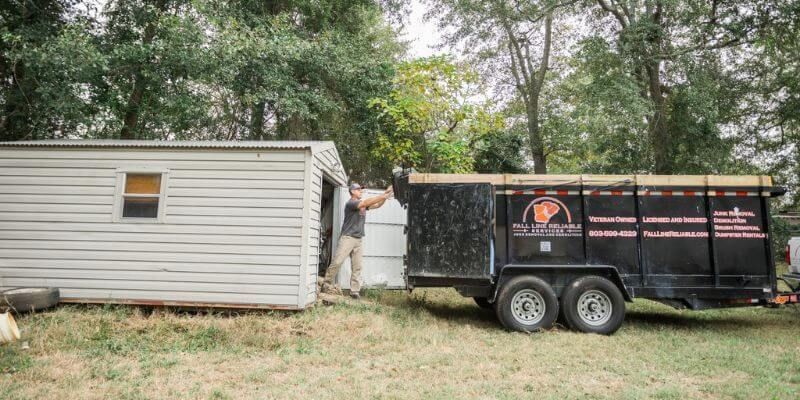
Traditional dumpster rental may not be the best option for your waste management needs.
Relying on a junk removal company like Fall Line Reliable Services can provide an alternative that is more cost-effective and convenient for you.
With junk removal services, there is no need to worry about the logistics of delivery and pickup.
We send a team to your location, load up all unwanted items, and dispose of them properly. This eliminates the hassle of having a large dumpster occupying your property.
Junk removal also offers flexibility in terms of weight limits.
With dumpster rentals, weight restrictions and additional fees may limit you if you exceed those limits.
But with junk removal, the pricing is based on volume rather than weight, giving you peace of mind knowing exactly what you will pay.
Hiring a junk removal company can save you time and effort. Instead of doing all the heavy lifting and disposal yourself, our trained professionals will handle everything.
This frees up your time to focus on more critical tasks or relax. At Fall Line Reliable Services, we understand that every customer’s needs are unique.
We offer customizable junk removal options to fit your specific requirements. Whether you need a one-time cleanout or regular ongoing services, we can work with you to create a tailored solution. Not only is junk removal convenient and efficient, but it also promotes sustainability and eco-friendliness.
We prioritize responsible disposal methods such as recycling and donation, minimizing landfill waste.
Final Thoughts About Dumpster Rental
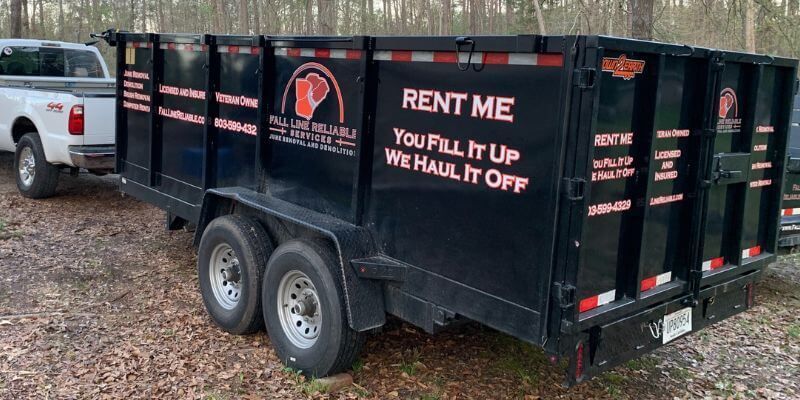
While dumpster rental may seem viable for junk removal, it can often be more hassle than worth it.
Not only do you have to deal with the heavy lifting and disposal yourself, but some potential additional fees and restrictions come with renting a dumpster.
Effective dumpster rental involves considering size, location, and duration to influence costs.
Flexible rental terms accommodate diverse project timelines, ensuring seamless waste management.
Cost optimization includes selecting the right dumpster size through provider collaboration.
Strategic placement, optimal rental use, and proper disposal practices enhance project efficiency.
If you need professional help, contact Fall Line Reliable Services at (803) 599-4329.
Let us do the heavy lifting and disposal for you while you focus on your project.
